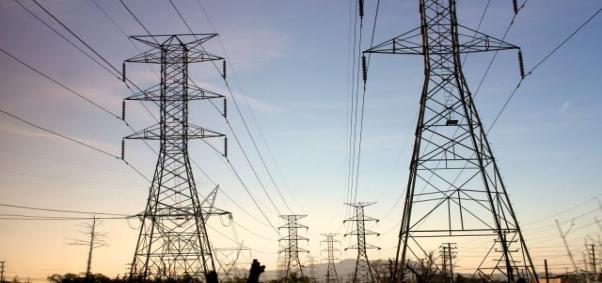
Europe's youth want climate action. Elected leaders should give it to them.
by Caio Koch-Weser
This article was originally published in Euractiv.
Caio Koch-Weser is Chair of the European Climate Foundation and member of the Global Commission on the Economy and Climate.
A green wave swept the recent European Union elections, with parties that demand climate action taking their largest ever share of the vote. The Green Party finished second in Germany, and strikingly, nearly a third of German voters aged 18-29 chose the Greens. Other young people, not yet voting age, are making their voices heard through school strikes across the continent, led by the inspiring Greta Thunberg. Europe’s people have made clear the gravity of climate change: now political leaders must respond.
They’ll soon have their chance. This week in Brussels, the European Council will set priorities on a range of issues—including the EU’s contribution to the Paris climate accord, and a potential deadline for carbon neutrality. Later this month, EU representatives will join other world leaders in Osaka for the G20 summit. Ambitious climate action must top both agendas.
Our planet’s health and prosperity are approaching a moment of truth. Between 1980 and 2017, extreme weather related to climate change claimed more than 115,000 lives across Europe, and cost the continent over €453 billion. This summer may shape up to be another one of record heatwaves for much of Europe. Research shows that to avoid runaway impacts from climate change, we must keep global warming to 1.5 degrees C. Globally, the best path hinges on peaking greenhouse gas emissions as soon as possible and then dramatically cutting emissions to net-zero by 2050.
The good news is this path offers unprecedented economic opportunity. Research from the New Climate Economy shows that bold climate action can generate €23 trillion in global economic benefits through 2030. People everywhere will see these benefits in their daily lives. In 2030 the world could have 65 million new, low-carbon jobs—more than the combined workforces of the UK and France today—while preventing 700,000 premature deaths each year from air pollution.
Countries’ commitments don’t yet live up to this urgency. But the Paris Agreement includes a mechanism specifically for governments to increase their ambition every five years, taking advantage of plummeting clean energy costs and technological innovation. 2020 presents the first test of this mechanism, and indeed of the Paris Agreement itself. We will soon find out whether this agreement can deliver what the world needs to secure strong growth and sustainable livelihoods.
The window of opportunity is closing. To realise the benefits of climate action, countries need to speed up their transitions to low-carbon economies. Some leaders already recognise climate change as the economic priority it is. Finance ministers from 20 countries (including 10 EU states) recently formed a coalition urging governments to use national fiscal policy and public finance to combat climate change. In April, 34 central banks joined forces to recommend a set of concrete deliverables for the financial sector that will help ensure a smooth economic transition. Being proactive will help these countries attract more investment in the long-term.
The inverse is also true—not acting comes with tremendous costs. The finance sector has woken up to the monetary risks of climate change, with investors big and small putting pressure on carbon-intensive industries. Last summer Ireland became the first country to declare its national investment fund will divest entirely from coal, oil and gas. Meanwhile, Climate Action 100+, a group of over 320 investors with €29 trillion collectively under management, are engaging directly with the largest corporate greenhouse gas emitters to identify sustainable paths forward.
At the heart of this momentum lies a growing appetite for transparency on climate-related risks. Nearly 800 organisations, with collective responsibility for €104 trillion in assets—as well as governments like Belgium, France, Sweden and the UK—support the Task Force on Climate-related Financial Disclosures, which urges companies to disclose climate risks in public, annual filings.
The bottom line is that leading investors and businesses want action. Over 70 European companies, including giants like Nestlé, Danone, IKEA, Unilever and BMW, have committed to sourcing 100% of their electricity from renewable sources. More recently the Corporate Leaders Group, representing dozens of businesses and investors, endorsed an EU-wide strategy for carbon neutrality by 2050.
Pressure for change will only continue to grow. Government leaders should listen to the growing chorus from the private sector and the public, particularly the wave of energised young voters.
At next week’s meeting, the European Council is set to discuss a 2050 target for carbon neutrality, and whether the EU will strengthen its climate commitment in 2020, as the Paris Agreement intended. This is a major opportunity for Europe to show its people and the world a positive vision for the future—one that protects lives and delivers new opportunities. A recent study on the health impacts of climate change in Europe found that reducing fossil fuel use could prevent 350,000 early deaths from air pollution every year. What’s more, strong and immediate action to transition to a green economy will put Europe at the forefront of the economic and job opportunities in emerging clean industries.
This is the moment for European leaders to deliver on the promises made in Paris, for the economy and for the European people. It would also have a ripple effect to encourage other major emitters, including China and India, to step up their action. The EU should come to the September UN Climate Action Summit with a clear commitment to step up its climate commitment in 2020, and to lay out a plan to reach net zero emissions by 2050.
Now is the time for politicians to look beyond their elected terms to a long-term vision for Europe and the world. They must represent the interests of our children and grandchildren, who are marching in the streets to protect their future. European voters have delivered a green mandate. It’s up to our governments to use it.

